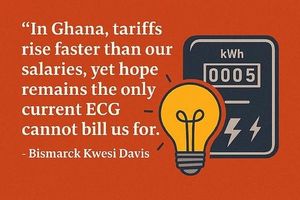Warnings of economic recession are becoming more pronounced as indicators like rising interest rates and fluctuated consumer sentiments coalesce to paint a troubling picture for many households and businesses. Recently, the Federal Reserve initiated its decision to raise interest rates once again, marking the highest levels not seen since the early 2000s. This move aims to combat inflation, which has plagued the economy since the last few years, leading many individuals to wonder: what does this mean for their financial well-being?
Experts have noticed these interest rate hikes lead to significant impacts on borrowing costs. Homebuyers, for example, are gripping the higher mortgage rates, now significantly above 7%, causing many to reconsider their home purchasing decisions. Financial analysts have been vocal about the correlations between rising rates and slowing economic growth. According to Jonathan Miller, CEO of Miller Samuel Real Estate Appraisers and Consultants, "We're witnessing the dynamics of buyers pulling back as mortgage rates increase, which is impacting housing demand. This glove is too tight, which will cause negative ripples throughout the economy."
The cost of borrowing extends beyond mortgages to personal loans and credit cards, where increased interest rates mean higher monthly payments. Families already strained by inflation might find it even harder to manage their finances. A recent survey found nearly half of American households live paycheck to paycheck, exacerbated by rising prices on day-to-day essentials, and the Federal Reserve's actions only add to this strain.
On the flip side, the Federal Reserve maintains its stance, asserting these interest rate hikes are necessary to bring inflation under control. They believe raising rates will eventually stabilize economic growth and push prices back down. Still, this approach has its critics. Many argue it risks pushing the economy toward recession if consumers significantly pull back on spending.
Another major concern arises from the uncertainty surrounding global events. Factors such as supply chain disruptions stemming from international conflicts, fluctuated oil prices, and persistent labor shortages have created economic headwinds. Economists suggest these elements contribute to recession signals, and the threat of stagflation – where the economy stagnates but inflation remains high – looms large. “We’re witnessing growth slow too significantly — this isn't the fast-paced economy we had anticipated,” explains Susan Collins, President of the Federal Reserve Bank of Boston. “Consumers are wary, and it shows.”
Further complicates the situation are predictions of unemployment rising slightly, as businesses prepare for potential contractions by slowing hiring or even implementing layoffs. This reaction is not unusual during periods of financial tightening, but it does create uncertainties for the citizens whose livelihoods depend on continued economic expansion.
The consumer sentiment index recently dropped to its lowest point, echoing concerns about the future. Many consumers expressed hesitance about large purchases and significant financial commitments, favoring saving over spending. Analysts argue this shift could hurt retail and service industries heavily reliant on discretionary spending. According to the National Retail Federation, sales could taper off soon if these patterns persist, warning about the potential downturn leading to potential job losses.
Despite these economic headwinds, pockets of the economy remain resilient. Notably, the tech sector has shown some strength, continuing to attract venture capital investment. Companies are actively hiring, illustrating the dichotomy within various economic sectors. Still, the prevailing sentiment remains cautious, and financial planners urge their clients to prepare for clouds on the horizon. “Diversifying investments and planning for uncertainties is the name of the game right now,” advises Charles Smith, a financial advisor based out of San Francisco. “Your money should work for you, especially when times get tough.”
Interestingly, some economists believe the Fed’s quantitative easing policies during the pandemic may have delayed signs of economic distress. Now, as step-up measures to combat inflation take effect, the symptoms of previous economic growth have morphed almost overnight. The housing market’s abrupt falloff is especially evident, with price reductions becoming commonplace as sellers adjust their strategies and consumers reconsider their options.
While the Fed marches on with monetary policy, politicians and policymakers are encouraged to look at strategies to stimulate the economy outside traditional tools used by central banks. Infrastructure reform and enhancements to local businesses could bolster economic resilience against the headwinds of elevated borrowing costs. Community investments, which ripple through local economies, remain strong proposals as ways to offset some of these worrying signals.
Looking at the future, estimations show continued fluctuations. The Federal Reserve is poised to reassess its strategies later this year, but with inflation still high and signs pointing toward recession, uncertainty is here to stay for the time being. It might be wise for consumers to exercise caution and those with investments to remain adaptable as market conditions evolve.
Conversations around potential economic conditions are emotional and charged, often because they touch every life. The common American might find themselves wondering how to navigate these turbulent financial waters. Will the Fed's intervention effectively tame the wild inflation with their continued hikes? Or will we find ourselves grappling with recession? For now, the answers remain clouded, but the indicators suggest one should be prepared as we move forward.
If you feel the shake-up from rising interest rates, you’re not alone. Many are feeling the pinch as they adjust to changing economic tides. Strapped budgets, uncertainty, and caution might dominate the conversation, but one thing remains clear: the coming months will matter greatly. How they adapt could define the resilience of personal finances and the broader economy.



